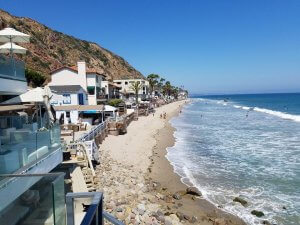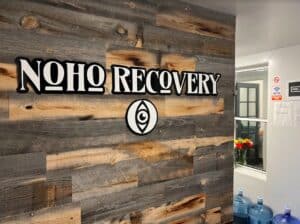Bath Salts Addiction And Abuse
What Are Bath Salts (Synthetic Cathinones)?
Bath Salts are a category of Synthetic drugs with Stimulant-like effects. The term “Bath Salts” doesn’t apply to just 1 specific drug, but rather to a number of substances that are chemically similar. The drugs became popular among teens and club-goers after 2010, yet recent surveys show less than 1% of teens today tried them in the past year.
In 2012, calls about Bath Salts to poison control centers peaked with 2,697 and declined each year after that.
The recent decline in the prevalence of the abuse of Bath Salts is perhaps due to the media shocking the nation with coverage of individuals who were high on the substances having psychotic breaks and suffering other negative consequences. It may also be due to Operation Log Jam, which was initiated by the government in 2012. In total, 109 cities were raided, 91 people were arrested, and 167,000 bags of Bath Salts were seized.
Online Addiction Counseling
Get professional help from an online addiction and mental health counselor from BetterHelp.
- Access to Therapy 24/7
- Easy Online Scheduling
- 20,000+ Licensed Therapists
Paid Advertising. We may receive advertising fees if you follow links to the BetterHelp site.
Featured Centers Offering Treatment for Bath Salts Addiction


Bath Salts are also commonly referred to as Synthetic Cathinones because of their similarity to natural Cathinone, derived from the Khat plant. The Khat plant is a shrub native to East Africa and southern parts of the Middle East; chewing its leaves produces feelings of euphoria and mild Amphetamine-like effects.
Synthetic Cathinones don’t actually have any relation to Epsom salts used to relax muscles in the bath tub. Instead, the drugs’ street name comes from their appearance: white or brown crystalline rocks or powder. A variety of chemicals commonly used to make these drugs are illegal Schedule I substances (such as 3,4-Methylenedioxypyrovalerone [MDPV]; Mephedrone [also known as Drone, Meph, and Meow Meow]; and Methylone). Yet drug manufacturers often subvert regulation and are able to sell Bath Salts in gas stations and smoke shops by making slight alterations to chemical formulas or by labeling their products as “not for human consumption.” Typically, these drugs are either swallowed, snorted, smoked, or injected.
Bath Salts are abused, as they have chemical structures similar to commonly abused Stimulants such as Cocaine or Meth. Some also have similarities to Hallucinogens such as Ecstasy. Over 40 states have banned commonly abused Synthetic Cathinones. Once a particular substance is banned, drug producers often create an analog, or chemical substitute, of the drug to continue manufacturing the Synthetic drug without breaking the law.
Bath Salts are often sold in smoke shops and gas stations with labels such as ‘plant food,’ ‘jewelry cleaner,’ and ‘phone screen cleaner.’
Street names for Bath Salts include:
- K2
- Spice
- Bloom
- Cloud 9
- Flakka
- Lunar Wave
- Scarface
- Vanilla Sky
- White Lightning
Check if my insurance covers rehab
Addiction Center is not affiliated with any insurance.
What Are The Physical And Mental Effects?
Bath Salts belong to the category of drugs known as Stimulants, as well as a group of drugs termed the “New Psychoactive Substances” (NPS). Because Bath Salts encompass multiple types of chemical combinations, little research has been done about their range of physical and mental effects. They do, however, share chemical similarities with Cocaine, Amphetamines, and MDMA (Ecstasy). One study showed Bath Salts can be at least 10 times more powerful than Cocaine.
Taking these drugs can result in feelings of:
- Clouded thinking
- Dizziness
- Euphoria
- Increased heart rate
- Intense nausea
- Intoxication
- Reduced motor control
- Sweating
- Vomiting
For some people, the mental effects of Bath Salts can be more dangerous due to their potential to cause unintended injury. They effects may include:
- Agitation
- Excited delirium
- Hallucinations
- Increased sociability
- Increased sex drive
- Panic attacks
- Paranoia
- Suicidal thoughts
- Violent behavior
Because it’s impossible to know what’s in each batch of these drugs without sending them to a laboratory for testing, the risk of overdose and even death can be high.
Looking for a place to start?
Join the thousands of people that have called a treatment provider for rehab information.
Free and confidential
Available 24/7
Access to professional treatment
Can You Become Addicted To Bath Salts?
As a new Psychoactive substance, little is known about the full addictive potential of Bath Salts. However, studies of rats have shown that animals will self-administer Synthetic Cathinones, indicating a compulsion to use the drug again and again. Some people who have developed a dependency on Bath Salts have also reported withdrawal symptoms (such as depression, anxiety, tremors, insomnia, and paranoia) when they stopped taking the drugs.
Use of these drugs does result in a response by the brain’s dopamine reward system, which is responsible for the development of addiction over time. Teens and young adults may be more likely to abuse and become addicted to Synthetic Cathinones after repeated use.
Help For A Bath Salts Addiction
Treatment for a Bath Salts addiction is similar to what might be seen with other substance use disorders. Rehab centers typically employ behavioral therapy techniques such as cognitive behavioral therapy, motivational enhancement therapy, and contingency management.
If you are in need of rehab-related support, contact a treatment provider today.
Published:
Author
Destiny Bezrutczyk

-
Destiny Bezrutczyk is a Digital Content Writer from west Iowa. She earned a Bachelor’s in English Language and Literature from Texas Tech University. After working as a freelance script and blog writer, she began writing content for tech startups. Maintaining a passion for words, she took on a variety of projects where her writing could help people (especially those battling mental health and substance use disorders).
- More from Destiny Bezrutczyk
Reviewed by Certified Addiction Professional:
Theresa Parisi

Theresa Parisi is a Certified Addiction Professional (CAP), Certified Behavioral Health Case Manager (CBHCM), and International Certified Alcohol and Drug Counselor (ICADC) with over 12 years of experience in the addiction treatment field.
- More from Theresa Parisi
Sources


Recovery Starts Today
Call Now For Addiction Support



Newport Academy – Teen Rehab Center
Port Townsend , WA


Sequoia Detox Centers
Spokane Valley , WA


Moonlight Mountain Recovery – Nampa
Nampa , ID

Bayside Marin Treatment Center
San Rafael , CA

Newport Institute for Young Adults
Sunol , CA

The Camp Recovery Center
Scotts Valley , CA

Moonlight Mountain Recovery
Pocatello , ID


Tarzana Recovery Center – TRC
Tarzana , CA



Hollywood Hills Recovery
Los Angelos , CA